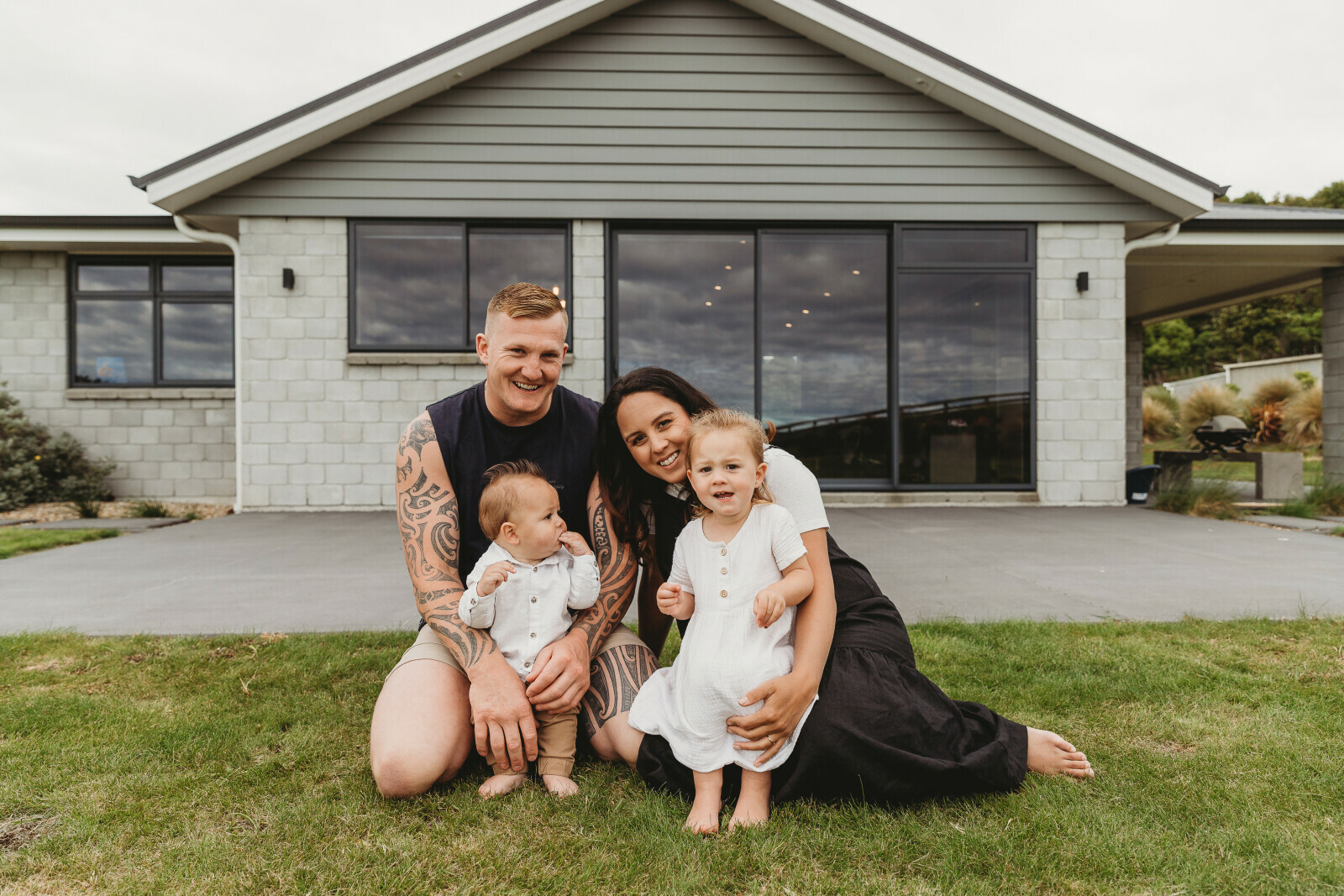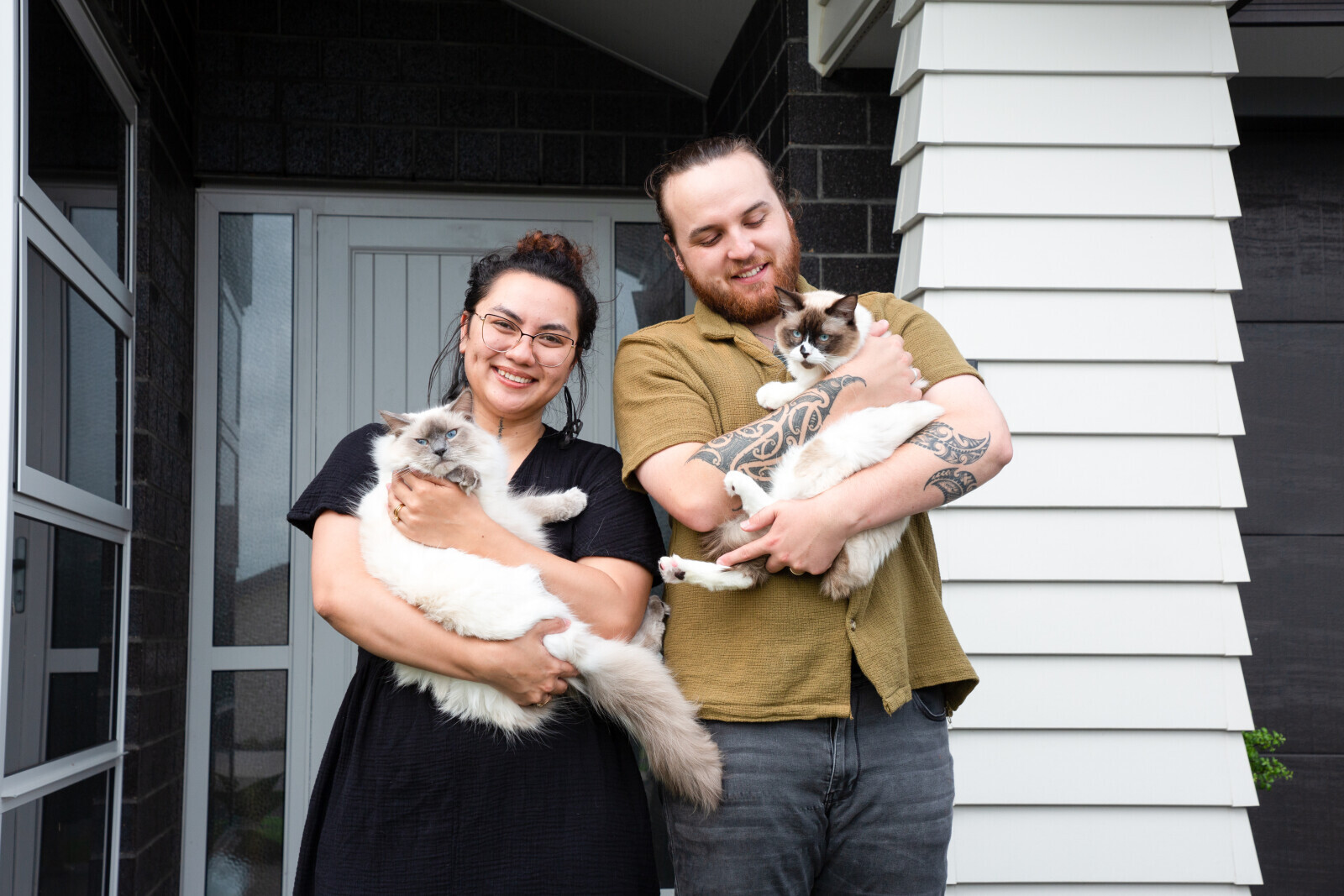


Whether you’re buying your first home, topping up your loan, or eyeing a second property, that’s awesome! The best place to start is a chat with your Velocity Financial Adviser. We’ll talk through your goals and find finance that fits your life.
Mortgage pre-approval is your first big step. It gives you confidence, sets your budget, and makes house hunting a whole lot easier.
Mortgage pre-approval is your financial starting point. It tells you how much you can borrow for a new home or investment property, based on your current situation, not the property itself. When you find a place you love, send the draft Sale & Purchase Agreement and any Disclosures to your Velocity Adviser for a quick review.
Valid Photo ID:
Passport or NZ driver’s licence.
Proof of Citizenship or Residency:
Passport, birth certificate, or resident visa.
Proof of Address:
Recent utility bill or bank statement.
IRD Number:
For tax identification.
Income Verification:
At least 3 months of payslips (or financial statements if self-employed).
Bank Statements:
3–6 months showing salary deposits and spending habits.
Deposit Evidence:
Savings account statements and KiwiSaver details.
Debt Details:
Recent statements for credit cards, personal loans, car finance, even if balances are zero.
Credit Check:
Your lenders will run a comprehensive credit check as part of the approval process.
Other Supporting Documents (if applicable):
Gift letters for deposit, proof of bonuses or commissions, rental income statements.
Many lenders will give us an answer within 3–5 working days. Your pre-approval usually lasts 60–90 days, and it’s conditional, meaning it’s based on finding a property that meets the lender’s criteria.
Once the bank has given us your loan approval, here’s what to do next:
* Read your Loan Offer Summary and keep it somewhere safe.
* Hang onto your approval document for reference.
* Let us know if anything changes in your finances.
* Found a property? Send us the Sale & Purchase Agreement and Disclosures.

To move from conditional to unconditional finance, you’ll need:
* A signed Sale & Purchase Agreement.
* Deposit evidence (including KiwiSaver confirmation if applicable).
* Proof of income (and boarder income if relevant).
* A registered valuation approved by the bank.
* Confirmation of no earthquake damage or EQC claims.
* Proof the property can be fully insured.
* Completion of bank ID, tax confirmation, and onboarding.
It’s a legal term banks use. The priority figure is the maximum amount they can recover from the property if things go wrong. It’s usually higher than your loan amount, but don’t worry, it’s just part of the paperwork.
Before you make an offer:
* Confirm the property is acceptable to the bank.
* Check that it can be insured by talking to our colleagues at Caveo.
* Talk to us about deposit timing (especially KiwiSaver and term deposits).
* Avoid any big changes to your financial position.

* 20% deposit: More bank options, better rates, smoother process.
* 10% deposit: Still possible, but expect:
* Fewer lender choices
* Slightly higher interest rates
* Lower borrowing limits
* A required Registered Valuation ($900–$1,200)
Families can help too. Check out our First Home Buyers Guide.
We’ll give you an estimate based on your income and expenses, but banks will:
* Review your full mortgage application
* Dive into your bank statements to understand your actual spending
If you're self-employed, banks will:
* Use your taxable income as the base
* Average income over a few years
* Ask for accountant-prepared forecasts
Until they’ve reviewed your documents, it’s hard to confirm your borrowing power, but we’ll help you get everything lined up.

* Your credit history and account conduct
* Your residency status in New Zealand
* The property must be acceptable security
* We’ll review the Sale & Purchase agreement and any disclosures
* Property type matters—apartments often need a higher deposit than standalone homes

Refinancing means switching lenders or renegotiating your current mortgage. It can help you:
* Get better interest rates
* Restructure debt
* Access new mortgage products
We’ll help you weigh up:
* Ease of application
* Product options
* Fees, rates, and service levels
Yes, you can apply for a top-up after the required time-frames have passed. You may need:
* Updated financial info
* A new valuation
* Confirmation your situation still meets bank criteria
You can make an offer anytime, just include the right conditions. Common ones are:
* Finance
* Insurance
* Builder’s Report
* LIM (Council Report)
* Title and legal review
Once these are sorted, you might be ready to go unconditional. Let’s chat about the best strategy for your situation.

We can connect you with an accountant for:
* Rental property tax advice
* Business accounting support
* Mortgage restructure implications
Need a lawyer? We’ve got great contacts for:
* Conveyancing and house buying
* Wills, trusts, and Enduring Power of Attorney (EPA) setup

Velocity Financial is paid by the lender when your loan settles. If your loan is discharged early, a clawback may apply. In that case, you may be invoiced for time spent (up to $3,000 at $200+GST/hour). Full disclosure documents are available online: https://www.velocityfinancial.co.nz/disclosure-statement.
We’re not just mortgage brokers, we’re your financial wingpeople. Whether you’re a first home buyer, property investor, or self-employed borrower, we’ll guide you through the home loan maze with clarity, care, and a bit of Velocity flair.
The information shared in this FAQ is meant to be general guide to support you on your journey. When making important decisions about your finances, we encourage you to seek independent financial advice first, tailored to your unique situation. As well as talking with a financial adviser, make sure you talk to your lawyer and accountant too – together they'll help you find the best solution for your specific situation. Our knowledgeable financial advisers are here to help. Check out our website for the details about our financial advisory services in our disclosures https://www.velocityfinancial.co.nz/disclosure-statement.